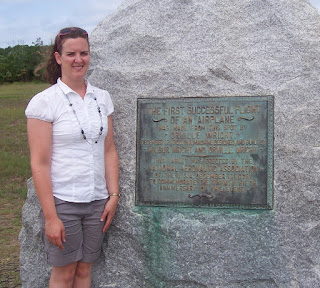“Jenny, do you know who Adrian Peterson
is?” My colleague asks me while
sitting in the teacher’s lounge.
“Hmm…” I ponder, “He plays for the Vikings right?”
These types of exchanges are common in
my daily life because in my world there are no sports. I doubt I could identify a picture of
Brett Favre if you showed one to me.
Perhaps it is because I could never participate in athletics that I have
never learned or paid attention to the rules of football. When people start to discuss the game I
feel completely shut out of the conversation; they may as well be speaking in
another language about something I have never seen before. I have no idea what people are taking
about or why they are so enthusiastically fixated on this game of brutal
attack.
All of this makes me wonder: why do
people like watching football? In the
hours of broadcast footage that leads up to, includes the Super Bowl, and its
post game analysis, there is only an estimated 11 minutes of action taking
place on the field. For the
uneducated viewer, this can seem like a waste of time. Sure, there has to be skill
involved. Moving a football stealthily
down a field reminds me a bit of playing chess, each player carefully executing
his role, but when players tackle each other and dance in the end zone, I
wonder if the fascination with the sport is vicarious in nature. Perhaps the people watching wish they
were out on the field, demonstrating their own strength and brutality?
Aware of my ignorance, and in search of
answers to my burning questions, I made it a goal this year to learn about the
game of football by the Super Bowl…except so far I have “fumbled” in my
efforts. Let me give you a quick “run
down” of my “game plan.”
1.
I asked a friend who coaches to send me a YouTube video
explaining football. He kindly
sent a video entitled, “Helping Women Understand Football”. Perhaps my lack
of understanding is gender-related, but I found this video to be
confusing. I got lost at the coin
toss—I’m not kidding! What in the
world does deferment mean?
2.
So, somewhere
between turkey and pumpkin pie, my uncle Mike, a high school football coach,
explained deferment to me during the course of Thanksgiving
dinner. He also used his knife and
fork to explain the process of scoring.
I somewhat understand how this works, but…
3.
The following
weekend I was invited to a friend’s house for lunch and an afternoon of
watching the Vikings. I realized
then and there that not only don’t I understand football; I don’t have the
motivation or drive to grasp the rules of the game. I simply have no prior knowledge to
which I can attach new information, because there are only three things I know
about football, all of which I have learned from reading books; perhaps I can
teach you a thing or two:
a. The term “blitz” is named after the German style of
“lightening war” called Blitzkrieg used in WWII.
b. The huddle was first used at Gallaudet University so
the students who were deaf and hard of hearing could conceal their signs they
made to each other while planning their next play.
c. Eli and Peyton Manning have authored a children’s
book called Family Huddle.
So will I be in front of a TV on
February 5, 2012? Absolutely! I may not understand or appreciate the
game, but the food is always delectable, (the first time I had ever had
homemade pizza cooked on a stone was at a Super Bowl party; I now own two of
them), the half-time shows are epic (I was first introduced to Michael Jackson in 1993 when he performed at half-time.
I asked my brother if it was Sandi Patty singing because I had no idea
who it was and I was a third-grader.
LOL! I am now a hard-core
fan and even dressed like him for Halloween), and it’s the commercials that everyone really seems to love (My favorite one
from last year is below). In the
end, with the season I hear the Vikings are having, perhaps ignorance is truly
bliss.
Me as Michael Jackson:





